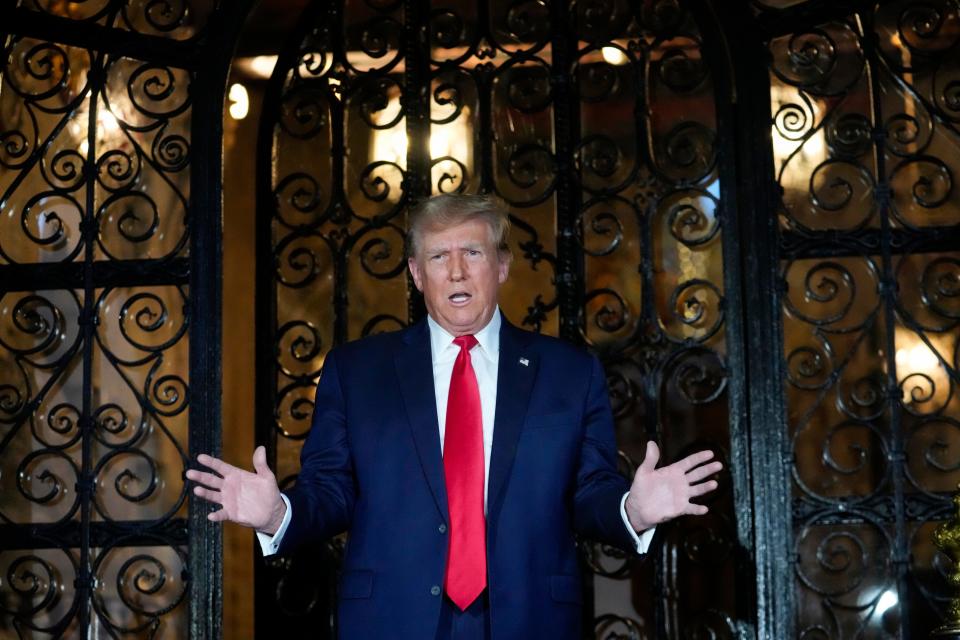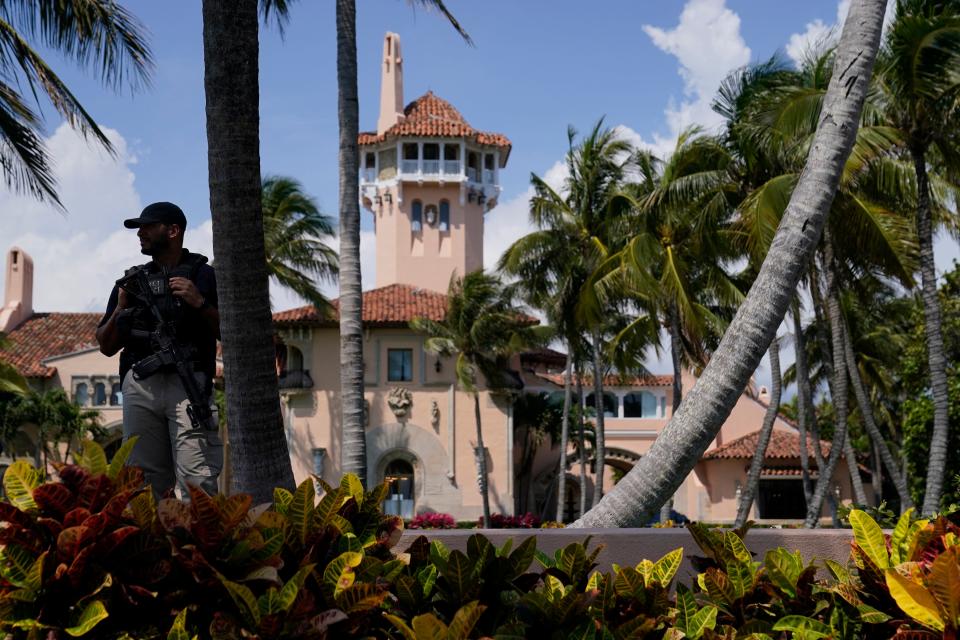Jack Smith wants July 8 classified documents trial, Trump says after the election, please
- Oops!Something went wrong.Please try again later.
- Oops!Something went wrong.Please try again later.
- Oops!Something went wrong.Please try again later.
The fight over a start date for Donald Trump's trial on charges of hoarding national security documents continued Thursday with prosecutors proposing July 8 and the former president's lawyers saying no fair trial could be held until after the November election.
Both options represent a delay to U.S. District Judge Aileen Cannon's tentative start date of May 20 that was set in the fall due to disputes over pretrial issues such as what evidence can be used at trial. She set a hearing for Friday to map out the scheduling options.
The Supreme Court’s decision Wednesday to hear Trump’s immunity argument in another federal criminal case against the former president could also cause Cannon to wait for a ruling from the high court. Trump has also claimed immunity from prosecution for taking hundreds of classified documents and retaining them at his home at the Mar-a-Lago club in Palm Beach, Fla.
The challenge of how to manage access to classified documents at the heart of the case, such as who gets to look at them, has slowed preparations for the trial.
Justice Department special counsel Jack Smith has urged a brisk pace, to ensure a verdict before the election. He proposed a start date of July 8 and laid out a schedule for hearings on pretrial motions.
Trump's lawyers Todd Blanche and Christopher Kise submitted a calendar showing how court dates would overlap with potential hearing dates in the case. The lawyers asked for a date fair to both sides "consistent with the Introduction and reiterating the position that a fair trial cannot be held until after the 2024 Presidential election is concluded."
Trump “strongly asserts that a fair trial cannot be conducted this year in a manner consistent with the Constitution,” for both a Sixth Amendment right to attend the trial and a First Amendment right to campaign for president, according to his lawyers.
Here's what we know about the case:

What charges does Trump face?
Trump faces 41 charges of keeping and hiding documents with classified markings at his Mar-a-Lago estate. More than 300 classified documents were recovered from Mar-a-Lago more than a year after Trump left the White House, most under subpoena in June 2022 or during an FBI search in August 2022.
Trump faces charges of willful retention of national defense information along with counts such as conspiracy to obstruct justice, withholding a document, corruptly concealing a document and making false statements.
"The classified documents Trump stored in his boxes included information regarding defense and weapons capabilities of both the United States and foreign countries; United States nuclear programs; potential vulnerabilities of the United States and its allies to military attack; and plans for possible retaliation in response to a foreign attack," the indictment said. "The unauthorized disclosure of these classified documents could put at risk the national security of the United States, foreign relations, the safety of the United States military, and human sources and the continued viability of sensitive intelligence collection methods."
What issues remain before trial?
Trump has urged Cannon to dismiss the case based on a handful of arguments, including that as an ex-president he is immune from prosecution. Trump also asked to throw out the case based on how Smith was appointed, prosecutorial misconduct for taking too long to file charges and the Espionage Act being too vague. In addition, Trump has argued that he designated the documents personal before leaving the White House, so they should fall under the Presidential Records Act with disputes handled as civil disputes rather than criminal charges.
Trump’s lawyers contend a former president can’t be charged for actions while in office unless the House impeaches him and the Senate convicts him. The Supreme Court agreed to hear his argument from his federal election-interference case.
Trump has made the same pitch to Cannon, whom he appointed. While he is charged with storing classified documents for 18 months after leaving the White House, Trump contends he designated the records as personal under the Presidential Records Act so he could take them with him.
Prosecutors previously called the argument about presidential immunity in the documents case "frivolous" because the alleged crimes of moving the documents to Mar-a-Lago and withholding them from investigations all happened after Trump left the White House. Other courts have upheld Smith’s appointment so far.
Trump is also asking for hearings on requests to suppress evidence in the case. He contends the FBI search of Mar-a-Lago was unconstitutional because of alleged omissions in the warrant application and how the search was carried out.
Cannon hasn’t ruled yet on Trump’s multiple requests to dismiss the case, while awaiting a formal reply to the various arguments from prosecutors.

What's at stake in the Friday hearing?
Cannon scheduled the Friday meeting to sort out a calendar for issues that still need to resolved before the trial, including motions and hearings.
Some of the issues include how to handle names of potential government witnesses, grand jury transcripts, exhibits, subpoenas and search warrant applications.
This article originally appeared on USA TODAY: Jack Smith requests July 8 start to Donald Trump's classified records trial

